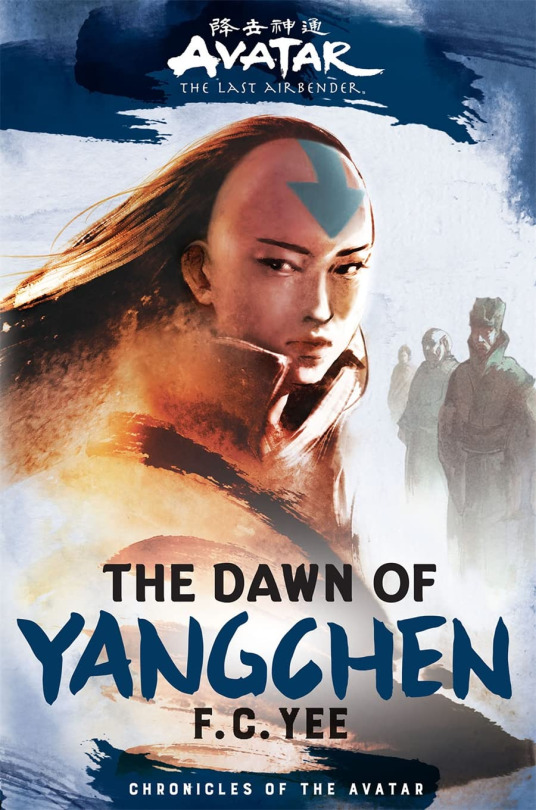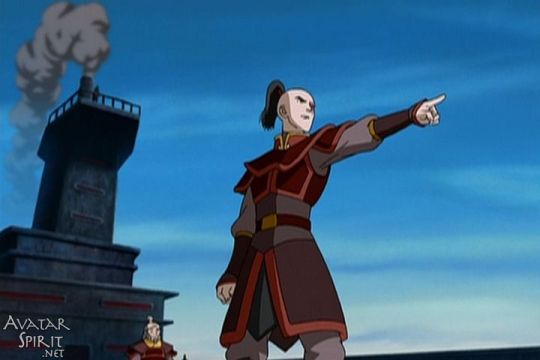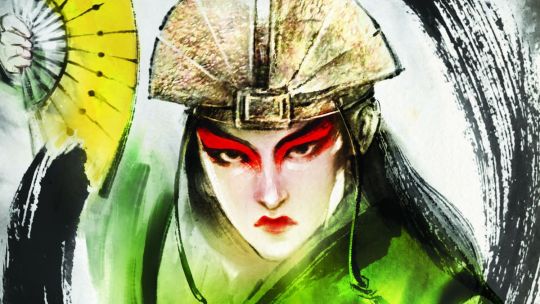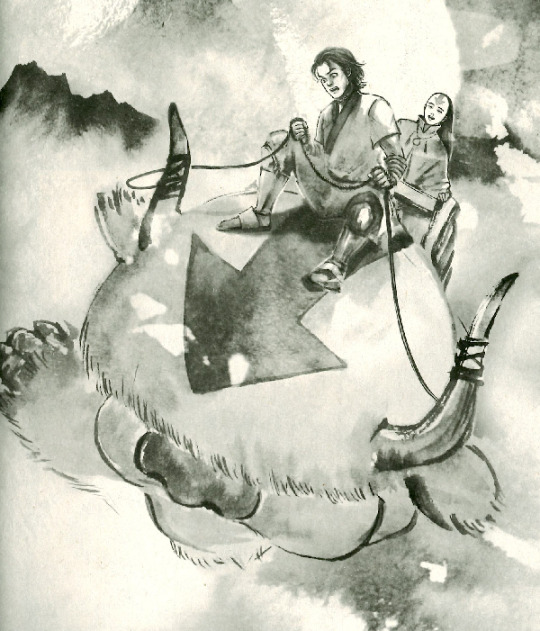Text
A Mini Demonstration of Set-up and Pay-off
Using Madame Web, of all things.

Because there is one competent scene in this movie--and it's because whoever wrote it used the technique of set-up and pay-off.
But first…
What is Set-up and Pay-off?

If you're a writer--or just float around literary circles--you're probably familiar with the term Chekhov's Gun.
The idea goes: "if a gun is hanging on the wall in the first act, it better go off by the third (act)."
But what does that actually mean? Let's unpack this phrase.
First off, imagine yourself as a member of the audience. You've noticed that a gun is hanging on the wall. What does that immediately entail?
That it has been deliberately shown to you, correct? That somehow, the filmmakers have gone out of their way to highlight it for you. Maybe they've done it by giving an insert of the gun hanging on the wall, or maybe the lighting of the scene draws attention to it.
The "easiest" way to draw attention to the gun is if a character acknowledges it. Someone points to the gun on the wall and goes: "hey, there's a gun hanging here!" But most storytellers shy away from this approach because it can be considered, well, cringe.
That's because set-up and pay-offs are meant to reward the audience for paying attention. Think of them almost as inside jokes between the audience and the characters. Set-ups exist to give behaviors, objects, and events meaning/context. Pay-offs then use the same behavior, object, and event as a shorthand to "pay-off" that meaning.
Thus, someone who misses the initial establishment of meaning, or the set-up, will miss out on the final pay-off. Set-up and Pay-offs are a form of "show, not tell."
It’s like when your favorite YouTuber says “hey, everyone who’s still watching, comment a 🏃.”
Then in the comments there are a bunch of ppl (who obviously skipped to the end) asking why everyone’s commenting 🏃🏃🏃
Those who miss the setup of 🏃, miss out on the significance of 🏃.
Still confused? No worries.
Let's look at the scene in Madame Web.
(The film itself is deeply confusing, ngl)
Warning: this scene has violence. Nothing graphic, but it can be a bit frightening.
youtube
Okay, so, TL;DW. Three girls are having fun in a diner, Toxic by Britney Spears is playing on the radio. This is all in the future, Madame Web can see this happening in the future because…reasons.
And the moment Toxic goes into its banger guitar (?) riff…

Bad stuff will happen.
(Dakota Johnson's acting in the scene is genuinely terrible, but bear with me here.)
This is our set-up. The filmmakers have now set-up that when Toxic enters into its instrumental break, the bad guy will have arrived.
This scene is actually really clever, because you don't realize this is a set-up until minute 1:30, when it is revealed that this is the future.
Dakota Johnson gets blasted back to the past…
And guess what starts playing on the radio?

This is our pay-off. The meaning has come back into relevance. And it tells us something: the girls will be in danger, Madame Web has to hurry.
This is where the film pats you on the back for paying attention to its brilliant song choice.
Okay, to sum up this scene, once more:
Set-up: establishes that once Toxic enters its instrumental break, the bad guy will arrive. Thus, giving Toxic's instrumental break meaning within the narrative.
Pay-off: brings the meaning of the set-up back into relevance, and thus conveys that time is of the essence, and the events we saw foretold will soon come true.
This scene fascinates me, because it's a good scene--a great one, even. Not only is this scene a great demonstration of set-up and pay-off, it's also a great demonstration of a ticking-clock, and a very creative one at that.
How this scene ended up in this film, I'll never know.
And here is the cherry on top of the cake:

from IMDB.
Hope this helped. Cheers!
2 notes
·
View notes
Text
Attempting to fix The Dawn of Yangchen, Pt. 2: Power Overwhelming
Spoilers for The Dawn of Yangchen, The Legend of Korra and The Rise of Kyoshi.
There's a saying you often hear in writing: your protagonist is only as good as your antagonist.
It's why you hear people gushing on and on about Batman's villains, and why most of them have their own spinoff movies/series now. Case in point:

But let's jump to an example I imagine more of you are familiar with.

Now don't get me wrong, this show is flawed and Nickelodeon was quite literally trying to tank it while it was still on air, but there's a reason why when people start discussing Avatar villains on r/TheLastAirbender, Korra's antagonists always find their way into the conversation (aside to the fact that she has four separate ones versus Aang's main one).
It's funny to hear people call Korra overpowered or a "Mary Sue", because what people don't realize what they're really saying is that Korra's antagonists are overpowered to the point that she feels overpowered when she finally defeats them.
Amon, Unalaq, Zaheer, and Kuvira all challenge Korra in different ways. Korra is good at brute force; she'll throw the elements at you and probably beat the crap out of you, but she also
lacks patience and believes her only value as a person is in being able to bend all four elements (Amon)
lacks spirituality and is too trusting/easily manipulated (Unalaq)
is too selfless and puts everyone else before her (Zaheer)
believes her friends and the world will not accept her as the avatar in her injured state (Kuvira)
(Forgive me if any of these are a bit off, it's been a while since I've watched Lok lol)
All of Korra's weaknesses are exposed (and ultimately resolved) as she struggles against her antagonists. They reveal aspects of her that Korra would otherwise keep hidden; this process, while painful, ultimately creates a more complex character. A good antagonist forces your protagonist to change in order to defeat them. And so we see that with every new antagonist Korra faces, she becomes a more-rounded, more mature Avatar.
Note also that ability-wise, each antagonist is much more skilled at a certain type of bending than Korra, at least at the beginning of the season. Compared to Korra, their powers are overwhelming.
Not all antagonists have to be physically dangerous to your protagonist, but in the type of action/adventure story that the Avatar series falls under, they better be.
Not only do Korra's villains pose great mental threats, but they also pose great physical ones. And for that reason, they are good antagonists.
Because a good antagonist feels impossible to defeat up until the very moment that they are defeated.

The same can be said about Kyoshi's antagonists, Jianzhu and Yun. Both prey on her insecurities and kind-hearted nature, forcing Kyoshi to make difficult choice after difficult choice.
Both also present a genuine physical threat to Kyoshi and the people she cares about; both are incredibly powerful benders, both are cold-blooded murderers, and both will do whatever it takes to get what they want.
I'd argue Jianzhu is a better antagonist for the simple reason that Yun is kind of a carbon copy of him in terms of how he functions as an antagonist. That's not to say Yun is not an interesting character, just that he doesn't reveal much new about Kyoshi that Jianzhu didn't already "tell" us.
Kyoshi is a powerful avatar because of Jianzhu and Yun. Korra is a powerful avatar because of Amon, Unalaq, Zaheer, and Kuvira.
But that's not true of Yangchen.

Because of the poor character plotting I already discussed in pt. 1, Yangchen's time is split between battling many different antagonists.
The main antagonist is Henshe, because he's the one who appears in the story's climax. But Henshe is also absent from most of the book because Yangchen is busy in Jonduri dealing with Chaisee, who is a much more effective antagonist than Henshe because she actually delivers on her threats.
I don't know about you, but I was downright terrified when Yangchen received that note from Chaisee in the fire nation. Again, Yee is not a bad writer; he can deliver suspense when it matters. But faced with the evidence, it does seem like Yee is not a good plotter.
All Henshe does is stand around, pick up the three benders at the dock, and then deliver them food and tell them where to aim. That's it.
But by far the worst transgression is that Henshe doesn't challenge Yangchen in any way. He is not an exceptional bender--in fact, he's not a bender at all; he doesn't prey on Yangchen's kind-heartedness as Chaisee does; he doesn't attempt to use Yangchen's weakness/ghost against her, nor does he really seem to know what Yangchen's weakness is anyway; and neither is he some great strategist who outsmarts Yangchen at every turn, forcing her to use her "fists" for once.
All in all, Henshe is barely an antagonist, just a person who appears in the third act to orchestrate some physical conflict that is immediately resolved once Yangchen arrives. He presents no real physical or mental threat to Yangchen.
Henshe, as he presently stands, is pathetic. And a hero who defeats a pathetic villain just isn't very heroic.
Okay, but what about the benders in unanimity? you ask. What if this is one of those twist-villain endings, where you think Henshe is the antagonist, but it's actually the combustion-benders?
Well, maybe, kinda--there are hints towards that when Thapa sort of threatens to turn on Henshe, but all he really does is ask for more money, then Henshe tells him to blow up people for a change because we need to raise the stakes somehow, and both of them are promptly defeated when Yangchen--I imagine--does what Zaheer does to the Earth Queen in LoK season three.

Which would've been cool if this was the first time we've seen this technique be used, but it's not (even though chronologically, this happened first), so……
No matter which way you cut it, neither Thapa nor Henshe are antagonists strong enough to actually challenge Yangchen. They never surprise Yangchen in any way, forcing her to think outside the box. And as a result, Yangchen fails utterly to surprise us, the audience, as well.
Because of her lackluster antagonists, Yangchen ends up feeling weak to us. Weak compared to Aang, weak compared to Korra, and especially weak when compared to Kyoshi.
And because her antagonist(s) never make the effort to reveal her weaknesses to us, Yangchen feels underdeveloped, underexplored, and unchanged by the end of DoY.
Yangchen deserved a better antagonist.
Hopefully, Yee gives her a more deserving one in LoY. (Fingers crossed!)
5 notes
·
View notes
Text
Attempting to fix The Dawn of Yangchen, Pt. 1: "Okay, but why tho?"
Spoilers for The Dawn of Yanchen, The Rise of Kyoshi, The Shadow of Kyoshi (minor)

Obligatory disclaimer: these opinions are my own and you do not need to agree with them if you do not wish to. I am just a writer who is trying to figure out why I don't like certain pieces of writing and adore others.
Compared to F. C. Yee's other installments in the Avatar: The Last Airbender series, The Dawn of Yangchen is definitely one of his weaker works (I have not yet read LoY). The plot feels profoundly unexciting at times, and I've seen people complain that despite Yangchen's name being plastered on the cover, the book sidelines her in favor of Kavik.
That's not to say this is a completely incompetent book with no redeeming qualities; if you haven't noticed already in his previous works, Yee is really, really good at writing character dynamics. Kavik and Yangchen's relationship is really fun, especially at the beginning. But as the story progresses and these two spend more and more time apart due to plot reasons, it becomes harder and harder to ignore the issues with the larger story.
There are a lot of things I think could be fixed in DoY. But in this post, I'm going to talk about what I think is the biggest issue: character motivation.
Most people are probably familiar with the concept of a character's want. Different writers use different terminology, but to simplify things, in this instance, I will be referring to a character's plot goal; it is the "thing" that they're chasing after, whether it be to kill Jianzhu (Kyoshi's want in RoK) or to capture the avatar (Zuko's want in 1st season of atla).

But when presented with a character's want, audiences often have the urge to ask: "okay, but why tho?"
It's a fair question, because what the question is actually asking is: "okay, but why do we care?"
"Why do we care if Kyoshi succeeds in killing Jianzhu?" "Why do we care if Zuko captures the avatar or not?"
The reason, of course, is because there is a deeper motivation driving these wants. A motivation that we, the audience, can relate to.
Let me introduce you to the idea of a character's Ghost and Lie.
Again, terminology varies, but when I talk about a character's ghost, I'm referring to an event (or events) from the character's past that continues to haunt them in the present.
Zuko's ghost is the event that gave him the ghastly scar over his eye: the Agni Kai against his father.
Kyoshi's ghost (in RoK)……i think is the moment when Jianzhu leaves Yun to die with Father Gloworm? I'm honestly a little lost, because Yee doesn't seem to subscribe to the idea of "ghost", but it's still helpful for us to examine character motivations.

From a character's "ghost", births their "lie".
The lie is a limited perspective that a character holds because of the traumatic event that is their "ghost", which then influences their want.
Think about the relationship between "want", "ghost", and "lie" as such: Ghost -> Lie -> Want, where each creates the next.
For Zuko, his lie is some variation of: "I must regain my honor at all costs." From his lie, he deduces his want: "if I can capture the avatar, I will regain my honor."
For Kyoshi, her lie is some variation of: "Jianzhu is much stronger than me and he will harm me if he finds me." From her lie, she deduces her want: "if I kill him, I will be safe from him."
And though we might not personally empathize with Zuko's desire to regain his honor or Kyoshi's desire to murder Jianzhu, we can understand why. We root for Kyoshi and Zuko because we understand why they are doing what they do, and because they are highly motivated in chasing their want.
Now let's take a look at Yangchen's want, ghost, and lie in DoY.

Yangchen's want: to bring prosperity to the people of the Shang cities.
Yangchen's ghost: Jetsun's death at the hands of the spirits.
Before we even get to Yangchen's "lie", does anyone see a problem with this combination of "want" and "ghost"?
If you said, "they have nothing to do with each other," you're right.
Thus, this creates a situation in which we, as the audience, ask the question of "okay, but why tho" to Yangchen's want, and are unable to get a satisfactory answer.
You can see this play out in the book itself. When Yangchen is in Jonduri, she gets a message from the Saowan clan and immediately jets off to help them deal with their spirit problem. And you, as the reader, is left asking, "okay, but why tho?" Why are we taking this detour?
Sure, she's the avatar and she's the bridge between humans and spirits, but this has nothing to do with her main goal, which is to basically "eat the rich". The detour feels inorganic, manufactured, and it almost makes you question whether the whole thing was just a ploy from Chaisee to distract Yangchen.
Or it's the other way around. While we follow Yangchen around the Shang cities, trying to enact change, we are left to ponder the question of "okay, but why tho?". Why does she care about any of these people, beyond the fact that it's her duty as the avatar to serve them?
But believe it or not, there's an "easy" fix that more or less keeps the events of the novel somewhat the same.
The "lie" is the critical piece that is missing in Yangchen's story. Right now, she's got a clear ghost and a clear want, but no lie that connects the two:
Ghost -> ??? -> Want
I see two different lies that could work here.
Lie 1: Spirits are evil and I must protect people from them as best I can.
Rather than having the Shangs hire head-kickers to maintain control over the cities, maybe have it be rumored that they have some great and powerful spirit on their side.
It kind of seems like Yee was building up to this lie a little bit, considering how the effects of Unanimity are first seen by the people of Jonduri as spirit disturbances, and it is also the official cover that Yangchen adopts at the end of the novel to hide Unanimity from world leaders.
Now it makes sense that Yangchen cares about the people of the Shang cities, not just because she's the Avatar and serves the people, but also because she has a personal interest in defeating the "spirits". With this setup, the detour to the fire nation to aid the Saowan clan makes sense as well.
Lie 2: Jetsun's death was my fault, and I must honor her memory as best I can.
This lie would also work, but is in my opinion much weaker than Lie 1.
Honoring Jetsun's memory would mean that Yangchen would commit wholeheartedly to aiding others in need, pacifism, and other air-nation values. It would give her a reason to get involved in the Shang cities in the first place.
This lie would also somewhat explain why Yangchen jets off to the Saowan clan; they are in distress, and she has dedicated her life to protecting people, believing it the only way to honor Jetsun's memory.
Of course, these lies need not last the entirety of Yangchen's story; after all, for every lie, there is a truth.
Again, terminology varies and there are nuances, but when simplified, the truth is something a character learns by the end of the story, as a result of everything that has happened.
The Truth to Lie 1: People are the real culprits to blame for the world's suffering
DoY kind of suggests this truth during the Saowan outing, when it's revealed that the humans encroached on spiritual territory and violated the deal that Yangchen brokered.
You could very well contrast the honesty that the Phoenix-eels present to Yangchen (however harsh) with Kavik's betrayal (however sweet in the moment).
And though unanimity is not the result of some spiritual disturbance, we still see how it is due to human greed that it becomes a weapon.
Now, does this truth correspond with depictions of Yangchen later in her life? Not really. Especially at the end of SoK, where she admits to siding with the humans over and over again the spirits, and how that was a mistake. But adherence to cannon is a problem for another time.
The Truth to Lie 2: I must carve my own path in the world, believing that Jetsun will be proud of me either way.
The problem with pairing this truth with the current story is that Yangchen is already an unconventional Avatar. Kavik notes this throughout the story: Yangchen uses disguises, hires errand-runners, engages in espionage, and lies to high-ranking officials.
But there is also an "easy" fix (because nothing in writing is ever easy, everything takes set up), which is to take Yangchen back; back before she adopted these tactics, and have her arrive in Bing-er as naive and trusting as they come.
Meeting Kavik introduces her to this world of shady tactics, and while Yangchen might not be as confident as she is throughout DoY, the idea of Kavik teaching the Avatar to spy on people and wear disguises could be really fun, me thinks.
I'm not going to get into Kavik's want, ghost, and lie here because I don't want to make this post longer than it already is, but hopefully, this has given you some food for thought.
#avatar: the last airbender#dawn of yangchen#atla#f. c. yee#rise of kyoshi#kyoshi novels#writing critique
11 notes
·
View notes